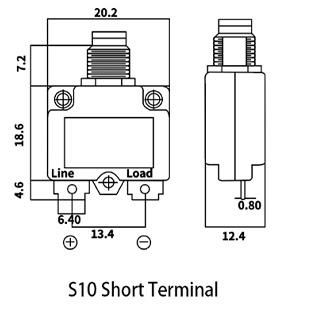The Advantages of Fiberglass Tape for Electrical Insulation
In today’s fast-paced technological world, ensuring electrical safety and reliability is of paramount importance. Fiberglass tape has emerged as a preferred material for electrical insulation applications, thanks to its unique combination of strength, durability, and electrical insulating properties. This article explores the benefits of fiberglass tape for electrical insulation, its applications, and essential factors to consider when selecting the right type.
What is Fiberglass Tape?
Fiberglass tape is a high-performance insulating material made from woven fiberglass fibers coated with various resins or adhesives. This combination creates a robust, flexible tape that can withstand extreme temperatures and harsh environmental conditions. The tape is available in various widths and thicknesses, making it suitable for a wide range of applications, particularly in electrical insulation.
Key Benefits of Fiberglass Tape for Electrical Insulation
1. Electrical Insulation One of the primary reasons fiberglass tape is favored for electrical insulation is its excellent dielectric properties. The tape acts as a barrier preventing electrical currents from passing through, thereby minimizing the risk of short circuits and electrical failures. It is capable of withstanding high voltage levels, making it suitable for both industrial and residential applications.
2. High Temperature Resistance Fiberglass tape is known for its ability to endure high temperatures without losing its structural integrity. It can typically withstand temperatures ranging up to 500°F (260°C) or even higher, depending on the specific formulation. This characteristic makes it ideal for use in environments such as motors, transformers, and other equipment that generate significant heat during operation.
3. Chemical Resistance The tape exhibits a high level of resistance to a variety of corrosive chemicals, oils, and solvents. This makes fiberglass tape an excellent choice for applications in industrial settings, where equipment is often exposed to harsh chemicals that can degrade other types of insulation materials.
4. Durability and Strength Fiberglass tape is not only electrically insulating but also mechanically robust. Its woven structure provides excellent tensile strength, making it resistant to abrasion and wear. This durability ensures that the tape maintains its effectiveness even in demanding environments, providing long-lasting insulation.
5. Flame Retardant Properties Many fiberglass tapes are treated to be flame retardant, reducing the risk of fire in electrical applications. This feature is critical in ensuring safety, particularly in industrial environments where flammable materials may be present.
6. Versatility Fiberglass tape can be used in a wide range of applications beyond electrical insulation. It is commonly used for wrapping around wires, insulating joints, and reinforcing critical electrical components. The tape can also be employed in construction and manufacturing to provide additional reinforcement, making it a multi-functional product.
fiberglass tape for electrical insulation

Applications of Fiberglass Tape
- Electrical Equipment Fiberglass tape is widely used in electrical motors, transformers, and generators to insulate wires and prevent electrical interference. - Aerospace and Automotive Industries In these industries, fiberglass tape is used for thermal and electrical insulation, as well as for securing components that may be exposed to high temperatures.
- Manufacturing Fiberglass tape is often utilized to protect sensitive equipment from electrical discharges and to enhance the longevity of machinery used in manufacturing processes.
- HVAC Systems In heating, ventilation, and air conditioning systems, fiberglass tape provides essential insulation to prevent heat loss and maintain efficiency.
Selecting the Right Fiberglass Tape
When choosing fiberglass tape for electrical insulation, consider the following factors
- Temperature Rating Ensure the tape is rated for the maximum temperature it will encounter in its application.
- Thickness The thickness of the tape may affect its insulating properties and mechanical strength. Choose a thickness appropriate for the specific requirements of the application.
- Adhesive Type Some fiberglass tapes come with different adhesive options. Select an adhesive that is compatible with the materials it will contact and the environmental conditions it will face.
- Width Choose a width that fits the specific application requirements, ensuring complete coverage of the area needing insulation.
In conclusion, fiberglass tape is a reliable and versatile solution for electrical insulation needs. Its unique properties, including high-temperature resistance, chemical resistance, and mechanical durability, make it an essential material across various industries. When selecting the appropriate fiberglass tape, it’s important to consider the specific requirements of the application to ensure optimal performance and safety.
-
Versatility with Tape Electrical InsulationNewsJun.09,2025
-
Floor Marking Tapes For WareHouseNewsJun.09,2025
-
Enhance Your Projects with PVC Electrical TapesNewsJun.09,2025
-
Enhance Your Projects with Automotive Wiring Harness TapeNewsJun.09,2025
-
Enhance Your Automotive Fabric TapesNewsJun.09,2025
-
Enhance Electrical Projects with Cambric TapeNewsJun.09,2025
